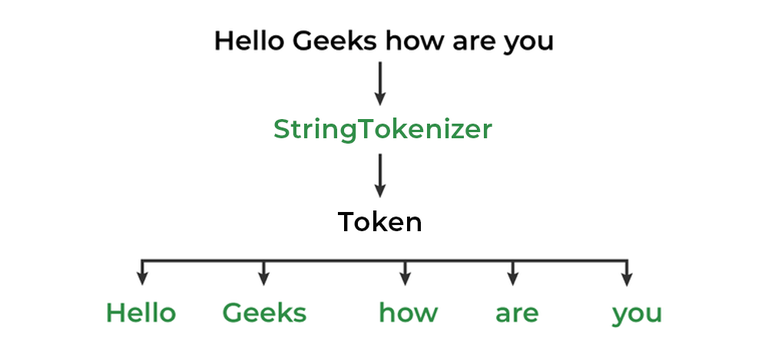Why Are Strings Immutable in Java? Comprehensive Overview for Beginners
Why Are Strings Immutable in Java? Comprehensive Overview for Beginners
Blog Article
Unalterable Strings: A Trick Component in Ensuring Information Consistency and Reliability
In the world of information administration, the significance of immutable strings can not be overstated. These constant series of characters play an essential duty in maintaining the stability and precision of details within systems. By maintaining a state of immutability, information uniformity is ensured, fostering a foundation of dependability upon which crucial procedures depend. The concept of unalterable strings transcends simple technicality; it is a linchpin in the facility web of information governance. As we discover the advantages, application approaches, and useful applications of immutable strings, a clearer image arises of their vital nature in safeguarding the digital landscape.
The Concept of Unalterable Strings
Immutable strings, a basic idea in programming, describe strings that can not be changed as soon as they are created. Basically, when a string value is appointed, any type of operation that shows up to change the string actually creates a brand-new string. This immutability makes certain data consistency and integrity in applications, as it avoids unexpected modifications to the original data.
Advantages in Data Consistency

Data uniformity is crucial in various facets of software advancement, including data source administration, multi-threaded settings, and distributed systems (Why are strings immutable in Java?). Immutable strings add significantly to attaining this uniformity by avoiding data corruption because of concurrent gain access to. In circumstances where numerous processes or threads interact with the exact same information concurrently, unalterable strings function as a safeguard against race problems and synchronization issues
In addition, the immutability of strings simplifies debugging and testing procedures. With immutable strings, programmers can trust that when a string is established, it will certainly continue to be unmodified, making it much easier to trace the source of mistakes and making sure that examination cases generate consistent outcomes. This reliability in data managing inevitably leads to more durable and stable applications.

Executing Unalterable Strings
Ensuring the immutability of strings requires a thoughtful strategy to their execution in software advancement. When a string things is produced, one essential strategy is to create string classes in a way that stops alterations. By making strings unalterable, designers can boost information uniformity and reliability in their applications.
To carry out unalterable strings successfully, developers must prefer producing new string things as opposed to customizing existing ones. This method makes certain that once a string is assigned a value, it can not be changed. dig this Furthermore, any procedure that appears to change the string ought to create a brand-new string with the desired adjustments rather than altering the initial.
Additionally, making use of immutable strings can streamline concurrency management in multi-threaded atmospheres. Because immutable strings can not be changed after development, they can be safely shared amongst multiple threads without the danger of information corruption.
Function in Reliability Assurance
In software application development, the utilization of immutable strings plays a critical duty in making sure the reliability of data procedures. Immutable strings, as soon as developed, can not be changed, ensuring that the data they stand for continues to be consistent throughout the application's implementation. This immutability building provides a degree of guarantee that the information being refined will certainly not be accidentally changed, leading to unanticipated end results or errors in the system.
By integrating immutable strings into software design, developers can enhance the reliability of their applications by reducing the risks related to mutable information - Why are strings immutable in Java?. Unalterable strings assist in stopping data corruption or unintentional modifications, which can be particularly vital when dealing with sensitive info or when data integrity is vital
Furthermore, making use of immutable strings simplifies simultaneous handling, as several threads try here can securely gain access to and share string information without the danger of one thread altering the content while another is reviewing it. This element adds significantly to the total dependability of the software program system, making certain predictable and regular behavior in data managing operations.
Applications and System Combination
The seamless assimilation of immutable strings right into various applications and systems is critical for making certain robust information consistency and dependability across varied technical environments - Why are strings immutable in Java?. Unalterable strings play a vital function in boosting the integrity of data exchanges and communications within Continue complex software environments. By incorporating unalterable strings right into applications, designers can minimize the dangers linked with information meddling, unapproved modifications, and inadvertent changes, consequently strengthening the overall security posture of the system
In the context of system combination, unalterable strings act as a foundational component for establishing protected interaction networks and assisting in smooth information transfers between different components. Their immutable nature makes certain that data transferred between systems stays the same and proven, reducing the likelihood of inconsistencies or errors that might compromise the stability of the entire system. Furthermore, immutable strings can improve interoperability between inconsonant systems by giving a standard style for information depiction, making it possible for extra effective data handling and exchange methods throughout interconnected platforms. By taking on unalterable strings in applications and system assimilation procedures, companies can fortify their data infrastructure and support the reliability and consistency of their info possessions.
Verdict
Finally, immutable strings play an essential role in keeping data consistency and integrity in different applications and system assimilations. By making certain that strings can not be transformed once produced, the stability of data is maintained, minimizing the risk of mistakes and variances. Executing unalterable strings can substantially enhance the dependability of systems, eventually leading to even more trustworthy and exact data handling.

Report this page